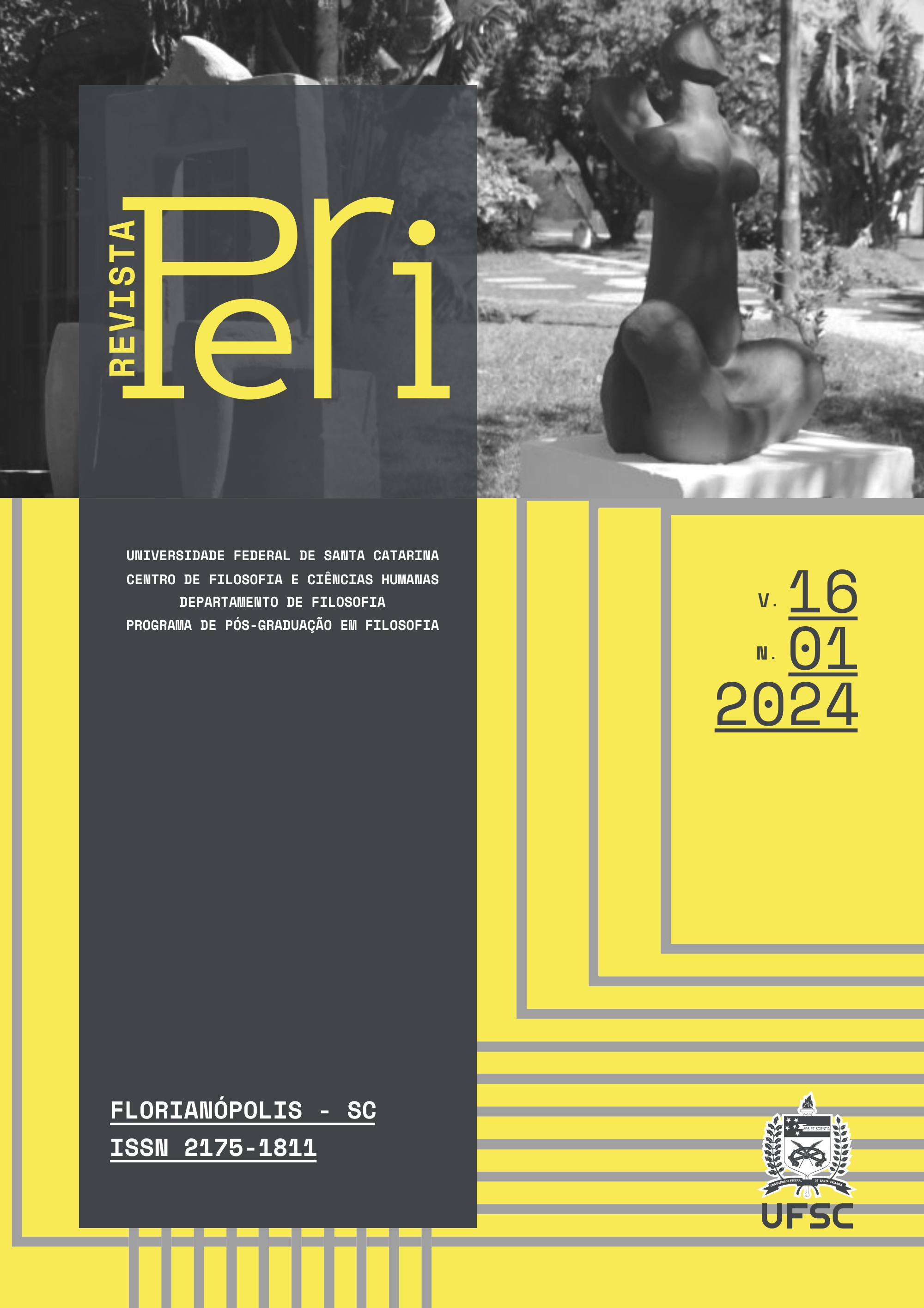Sense (Sinn) as a pseudo-problem and sense as a radical problem:
a reading of the motivations of Quine against Carnap
Palavras-chave:
sense, semantic skepticism, extensionalism, Quine, CarnapResumo
The conflict between Quine and Carnap over the notion of Sense represents a fundamental debate in the 20th century. The question represents the state to which skepticism about a clear theoretical awareness of the limits of understanding of sentences can reach. It is about whether, as with moral, aesthetic, and metaphysical notions, the characterization of Sense would represent an unnecessary super-notion unable to figure in decidable sentences, as true or false sentences. Going deeper, the problem addresses the ability to characterize the discernment of truth conditions for modal propositions and propositional attitudes, promising an identity criterion stronger than the extensional one for logically compatible propositions. Our article will argue that Quine's naturalism applies skepticism (about intensions) not to enact the absence of a problem or the pseudo-problematic nature of the question of Sense; on the contrary, he believes that the question of Sense is incorrectly framed. It is a semantically dogmatic expression of a broader scientific challenge, present in the practice of providing coherence to empirical investigation and our social production of consensus and paradigms of meaning. We will call this the radical problem generated by the idea of Sense. This shifts to the problem of the dispute between rational parameters and paradigms of linguistic consensus, bringing the question to its true enigmatic face.
Referências
CARNAP, R. Meaning and synonymy in natural languages. Philosophical Studies, n. 6, p. 33-47, 1955.
KATZ, J. J. Sense, Reference, and Philosophy. Oxford University Press, 2003.
FREGE, G. Sense and Reference. The Philosophical Review, v. 57, n. 3, p. 209-230, 1948.
KEMP, G. Quine: A Guide for the Perplexed. New York, London: Continuum, 2006.
_____. Quine versus Davidson: Truth, reference, and meaning. Oxford :Oxford University Press, 2012.
QUINE, W. V. O. Mr. Strawson on Logical Theory. Mind, v. 62, n. 248, 433–451, 1953.
______. Word and Object. Cambridge: The MIT Press, 2013.
______. Two Dogmas of Empiricism. In: ______. From a Logical Point of View. Harper Torchbooks. 1963.
______. Theories and Things, Cambridge: Harvard University Press, 1981
______. Ontological Relativity and Other Essays. Columbia University Press, New York, 1969.
______. Carnap and Logical Truth. In: ______. The Ways of Paradox. Cambridge: Harvard University Press, 1994.
______. Necessary Truth. In: ______. The Ways of Paradox. Cambridge: Harvard University Press, 1994.
______. The Roots of Reference. Ilinois: Open Court La salle, 1974.
______. Use and its Place in Meaning. Studies in Linguistics and Philosophy, n. 3, p. 1–8, 1979.
______. Indeterminacy of Translation, Again. Journal of Philosophy, v. 84, n. 1, p. 5–10, 1987.
Downloads
Publicado
Edição
Seção
Licença
Copyright (c) 2024 Lucas Ribeiro Vollet

Este trabalho está licenciado sob uma licença Creative Commons Attribution-NonCommercial-ShareAlike 4.0 International License.
1. Autores mantém os direitos autorais e concedem à revista o direito de primeira publicação, com o trabalho simultaneamente licenciado sob a Creative Commons Attribution License que permite o compartilhamento do trabalho com reconhecimento da autoria do trabalho e publicação inicial nesta revista.
2. Autores têm autorização para assumir contratos adicionais separadamente, para distribuição não-exclusiva da versão do trabalho publicada nesta revista (ex.: publicar em repositório institucional ou como capítulo de livro), com reconhecimento de autoria e publicação inicial nesta revista.
3. Autores têm permissão e são estimulados a publicar e distribuir seu trabalho online (ex.: em repositórios institucionais ou na sua página pessoal) a qualquer ponto antes ou durante o processo editorial, já que isso pode gerar alterações produtivas, bem como aumentar o impacto e a citação do trabalho publicado (Veja O Efeito do Acesso Livre).


